Sciences : concepts et problèmes
Editor: Sarah Carvallo
The collection publishes epistemological works on the various scientific disciplines (formal sciences, natural sciences, humanities and social sciences). It mainly hosts books on the philosophy of science, but also studies in the history or sociology of science with an epistemological dimension.
-
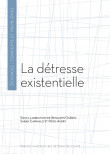
La détresse existentielle
Benjamin GUÉRIN – Sarah CARVALLO – Régis AUBRY (edit. director) – Régis AUBRY (frwd) – Agata ZIELINSKI (postface) – 2025
Existential distress is a dimension of suffering that disrupts identity to the point of calling into question the meaning of life and raising the question of suicide. Why does it emerge? How can we support and take care of it?
 13.00 €
13.00 € -
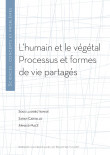
L’humain et le végétal. Processus et formes de vie partagés
Arnaud MACÉ – Sarah CARVALLO (edit. director) – 2024
What do we have in common with plants? This question opens up an alternative history to theories of the great division between nature and culture in order to identify the affinities between humans and plants and to recapture what is vegetative in us.
 20.00 €
20.00 € -
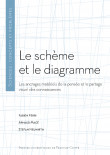
Le schème et le diagramme
Fabien FERRI – Arnaud MACÉ – Stefan NEUWIRTH (edit. director) – 2024
This book brings together studies that explore the ways in which thought is nourished by the bodily, scriptural and graphic resources that it mobilises, especially schemes and diagrams designed as tools for sharing knowledge.
 20.00 €
20.00 € -
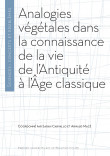
Analogies végétales dans la connaissance de la vie de l’Antiquité à l’Âge classique
Sarah CARVALLO – Arnaud MACÉ (edit. coord.) – 2023
This book presents the results of an investigation through medical, botanical and philosophical texts from Antiquity to Early Modernity to identify plant analogies invested in knowing and taking care for the human body.
 20.00 €
20.00 € -
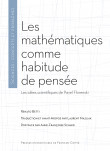
Les mathématiques comme habitude de pensée
Renato BETTI – Laurent MAZLIAK (transl. by) – Laurent MAZLIAK (frwd) – Anne-Françoise SCHMID (postface by) – 2022
Florenski conceives mathematics as a human science. His philosophical and mathematical synthesis is essentially grounded on the set theory not only in order to understand the world, but more deeply to even shape phenomena. This approach involves understanding mathematical intuitions as a spiritual form.
 20.00 €
20.00 € -
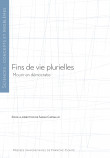
Fins de vie plurielles
Sarah CARVALLO (edit. director) – 2021
Collecting together medical analysis with philosophical and anthropological studies, this publication follows up leads in order to make compatible the plurality of issues and values embedded in end of life situations
 13.00 €
13.00 € -
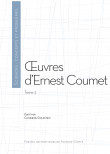
Œuvres d'Ernest Coumet (t. 2)
Catherine GOLDSTEIN (ed.) – 2019
Ernest Coumet’s thesis, published for the first time on the history of combinatorics in France in the seventeeth century and its links with the history of music and the search for a universal language.
 39.00 €
39.00 € -
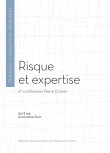
Risque et expertise
Alexandre GUAY (ed.) – 2018
Le risque comme l’expertise sont des sujets d’une rare richesse, comme le confirme la vaste littérature sur ces questions. Lorsqu’ils sont croisés, les difficultés que chacun d’entre eux soulève s’en trouvent renforcées. Le présent ouvrage est le produit des sixièmes conférences Pierre Duhem qui avaient pour thème : risque et expertise. Il rassemble les textes originaux de l’économiste Marc Fleurbaey et du philosophe Sven Ove Hansson, ainsi que les échanges qu’ils ont eus avec les commentateurs Mikaël Cozic, Minh Ha-Duong et Emmanuel Henry. Un essai introductif, d’Alexandre Guay, complète le tout.
 18.00 €
18.00 € -
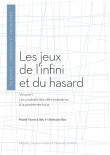
Les jeux de l’infini et du hasard
Marie-France BRU – Bernard BRU – 2018
Cet ouvrage traite des rapports entre l’infini et les probabilités. Le volume 1 est consacré à l’histoire des probabilités dénombrables de Borel, 1909. Le second volume est une introduction à la Théorie analytique des probabilités de Laplace où l’infini est potentiel.
 59.00 €
59.00 € -
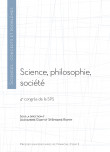
Science, philosophie, société
Alexandre GUAY – Stéphanie RUPHY (edit. director) – 2017
La transformation du mode de production des connaissances scientifiques va de pair avec une évolution significative des attentes de la société vis-à-vis des sciences, et soulève pour le philosophe de nouvelles questions : qu’est-ce qui est vraiment nouveau dans le régime actuel de production des connaissances ? Quel rôle et quelle responsabilité pour le chercheur face à la demande croissante d’expertise scientifique ? Quelle attitude avoir face à des avancées technologiques touchant à la nature même de l’Homme ? Le citoyen doit-il être davantage impliqué dans le choix des grandes priorités de la recherche ?
Cet ouvrage offre une sélection variée et accessible de travaux actuels en philosophie des sciences explorant les facettes multiples des relations entre science et société.
 18.00 €
18.00 €








